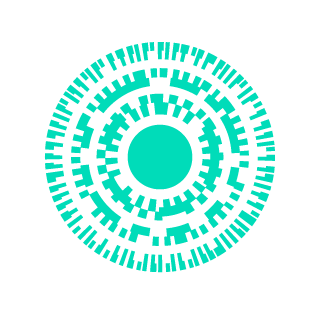Using blockchain to authenticate luxury goods offers the potential to mitigate one of the industry’s biggest problems – counterfeiting. But as well as addressing industry pain points, blockchain also offers the opportunity to strengthen the relationship between luxury brands and their customers. Used in the right way, they can open up new channels of engagement, become a valuable component in building customer loyalty, and create the means to build brand-centric communities.
Using blockchain authentication alone already comes with several more intangible benefits to the customer-brand relationship, giving customers a guarantee of authenticity already establishes a basis of trust.
Luxury firms can leverage this basis by enhancing the experience with information that brings the customer closer to the brand and offering special services tailored to the customers such as styling tips, repair services, warranties or many more. Also, attesting to the sustainability and fair-trade practices involved in the product’s manufacture could further cement the bond of trust and transparency.
However, it’s in blockchain’s peer-to-peer capabilities that the true potential becomes apparent.
Creating a Direct Connection with Customers
In the existing engagement model, brands rely heavily on social media platforms and other service providers, which typically act as gatekeepers between any user and their followers. Overnight, an algorithm change or policy update can mean a sudden loss of exposure or engagement, damaging the ability to reach communities.
In contrast, the relationship between a brand and customer can be a direct one, creating an exclusive channel for strong and personalised two-way communication. This unique relationship lasts for the entire lifecycle of the product creating an immersive journey for each luxury client. Customers can access repair services, as well as a range of exclusive personalised experiences, such as invitations to instore events, styling tips and more, dependent on the offering from the respective brand.
Brands are already using this feature to great effect – one only needs to observe the cult success of Bored Ape Yacht Club (BAYC) and its slew of celebrity followers to see it in action. BAYC is a club in the truest sense of the word – you need to own a Bored Ape NFT to be a member. Member benefits can be anything that the BAYC team dreams up, from in-person meetups to token-based rewards.
Now, luxury brands are beginning to see that the opportunities of using NFTs in this way go far beyond even the most optimistic market value of NFTs as speculative assets. Diesel has become one of the latest to explore the possibilities with its digital D:verse platform, offering digital NFT wearables alongside a limited edition physical collection. The D:verse community promises to offer exclusive benefits such as invitations to real-world fashion shows, access to pre-sales, and whitelisting for future NFT drops.
By using NFTs in this way, Diesel can identify a group of extremely loyal customers who value being part of an exclusive online community and are eager to engage with the brand in innovative new ways. The company can set up members-only groups and platforms where people can only join by proving their NFT ownership, making identifying members very straightforward.
Getting Creative with Communities
From here, the brand can get as creative as they like when it comes to leveraging the potential of blockchain to power up their customer relationships. One opportunity could be to incorporate blockchain and NFTs into existing loyalty strategies by offering token-based reward programs or linking NFTs to specific loyalty benefits. Another is to use NFTs and rewards to create specific segments of customers that are willing to participate as test audiences for new products or services.
Brands could also harness their communities in promotional efforts by using NFTs or tokens as rewards, creating large networks of micro-influencers that can be galvanized for any given launch or campaign. These networks can exist across multiple communication platforms, meaning they’re resilient to disruption if any one platform goes offline, out of business, or just changes the rules.
Aura Blockchain Consortium provides 2 solutions:
- Aura SaaS for traceability and digital certificates living on the Aura private blockchain
- Aura NFT Solutions, with NFTs living on the public blockchain networks such as Ethereum, Palm or Polygon. On both solutions, the necessity to strengthen the customer relationship remains and brands may decide to attach NFTs to physical products or not, to unlock new customer experiences
Aura Blockchain Consortium’s solutions exist to raise the bar for the luxury and virtual luxury sector, creating new standards in trust, transparency, innovation, and sustainability. Founded by leading names in the luxury sector, Aura Blockchain Consortium aims to be flexible enough to support the implementation of the technology across a range of business use cases without high barriers to entry.



